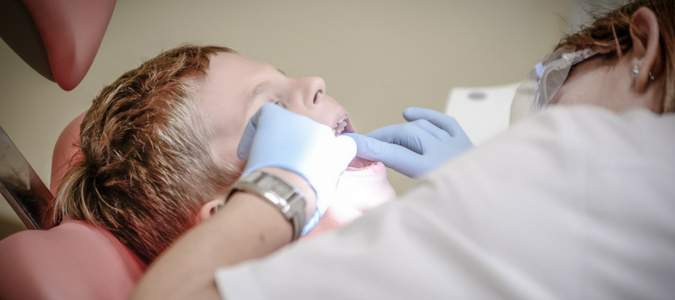These days, it seems as though three things are certain: death, taxes, and braces.
While a lucky few hit the genetic lottery with naturally straight teeth, the vast majority of Americans will find themselves in an orthodontist’s chair at some point in their lives. The good news is that advancements in orthodontia have come a long way (hello, you can now order “braces” online), the bad news is that, bottom line, braces are expensive no matter how you cut it.
If you’re new to the military healthcare system, then it is pertinent to note that orthodontia does not fall under general medical needs, meaning it is not covered under Tricare. Throughout the past few decades, the military has experimented with different providers for dental care; most recently, the switch was made to United Concordia.
Depending on the Tricare plan your family subscribes to, you may or may not be used to paying out of pocket for doctors visits or prescriptions. Regardless of your plan, the military is generally touted as having one of — if not the — best healthcare offerings in the nation (perhaps the world).
The unfortunate segue from this is that, unlike most general healthcare needs, the military healthcare system does not necessarily cover the bulk of costs for certain dental procedures and restorative services for dependants — and braces is one of them. The silver lining, though, is that you are only liable for 50% of the tab (unlike some procedures and restorative services, all service members, regardless of rank, pay for 50% of braces).
This is a special exception to the rules! Georgia School of Orthodontics in Atlanta, GA, along with the Georgia Dental Foundation, runs a program called The Purple Heart Smiles Program. The mission of the Purple Heart Smiles Program is to provide free braces to children age 16 or younger of Georgia veterans who are Purple Heart recipients. Learn more.
Military kids are eligible for braces up until the age of 21 (23 if they are enrolled full-time at an accredited university).
For military spouses, the age at which braces stop being covered partially by the government is at the age of 23. (The good news, though, is that there are affordable teeth correcting services like Smile Direct, so if you’re past the age of 23 and wanting to straighten your teeth without breaking the bank, options exist!) Regardless of whether you are seeking braces for your child or yourself, it is important to remember to, when when making the initial appointment, ensure the orthodontist accepts United Concordia insurance. Otherwise, you will be liable for out of network charges. Choosing an orthodontist in the United Concordia network means that you will be paying the minimum amount required.








